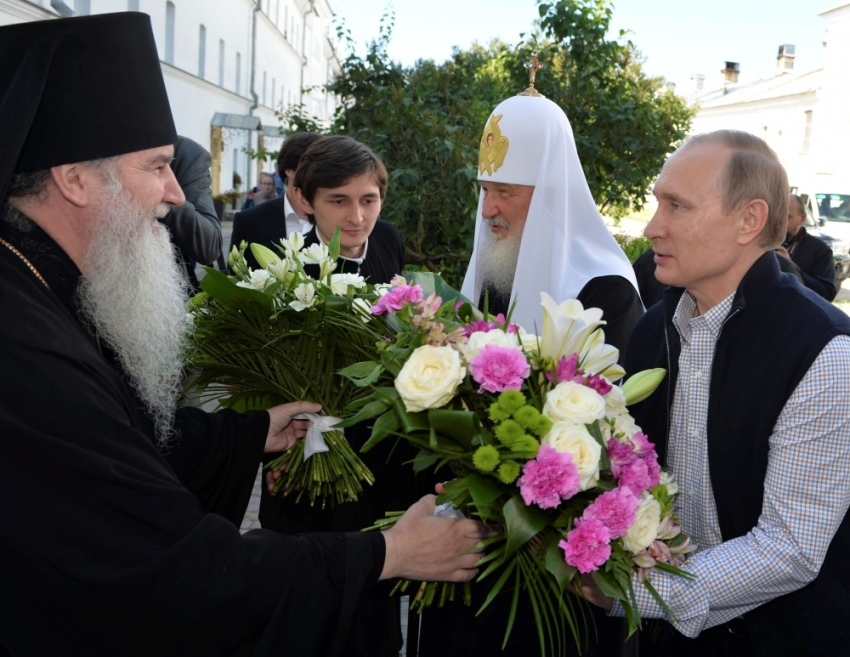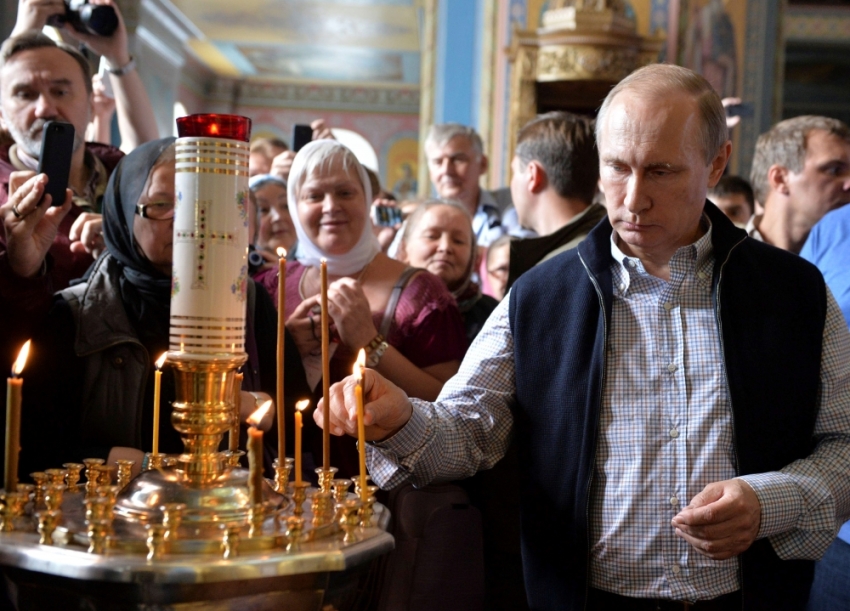Christians in Russia Fear KGB-Style Crackdowns After Putin Signs Law Banning Evangelism

Russian evangelicals are expressing alarm in light of President Vladmir Putin's signing of a so-called anti-terrorism law last Thursday that imposes harsh restrictions on religious freedom by banning religious gatherings in homes as well as evangelism and missionary activities.
How this law will be applied when it goes into effect on July 20 remains "a very huge question mark," according to Joel Griffith of the Slavic Gospel Association. Other leaders fear the move signals a return to Russia's "shameful past" of Communist persecution of Christians, Radio Free Europe reports.
Griffith told Mission Network News in an interview on Friday that the law "could stop missionary activity to anybody but representatives, registered organizations and groups, it would require every missionary to have documents with specific information proving connections to a registered religious group."
If enforced as strictly as the text says, Griffith notes, missionaries and anyone desiring to share the Gospel outside of their church can expect fierce penalties.
Governments and human rights advocates all over the world have condemned the law.

Thomas J. Reese, chair of the the United States Commission on International Religious Freedom, called the law "deeply flawed," saying it would "make it easier for Russian authorities to repress religious communities, stifle peaceful dissent, and detain and imprison people. He added that neither the new measures "nor the currently existing anti-extremism law meet[s] international human rights and religious freedom standards."
The new "Yarovaya" law, named after the bill's author Irina Yarovaya, contains new police and counterterrorism measures eerily reminiscent of Soviet-era KGB tactics that grant state security agencies the authority to access private communications, regulate Christian proselytizing on the internet, and requires telecom companies to store phone conversations, text messages, and videos for six months and provide that data to the government.
Attorney Vladimir Ryakhovsky of the Moscow-based Slavic Centre for Law and Justice, an advocacy group that defends religious freedom in Russia, noted on his Facebook page that July 7, the day that Putin signed the bill, represents a "black day on the calendar." Those who wrote the statute simply "do not understand religious practice," he continued, urging Christians not to "succumb to panic when [the government] threaten[s] you with all kinds of horror stories."
Ryakhovsky's warnings are merited as reports have also surfaced that Christian groups that meet in homes are already being harassed.
According to Forum 18 News Service, deputy bishop Konstantin Bendas of the Pentecostal Union recounted that even before the law passed he knew of an incident near Moscow in which a local police officer threatened a group of Pentecostals, reportedly telling them "Now they're adopting the law I'll drive you all out of here." Bendas now expects such "zealous enforcement" to continue.
Central to understanding the controversy is Russia's persistent refusal to grant land for Protestants to construct church buildings. Because of this they are forced to hold their worship services and charitable activities in residential areas and the new law takes no account of this practice, thereby making it easy for the government to persecute them.
"The obligation on every believer to have a special permit to spread his or her beliefs, as well as hand out religious literature and material outside of places of worship and used structures, is not only absurd and offensive, but also creates the basis for mass persecution of believers for violating these provisions," said Sergei Ryakhovsky who heads Protestant Churches of Russia, in her column on The Wold Post.
The SCLJ will advise Christians from Moscow on the new law in a web-streamed seminar on July 19. The Yarovaya law goes into effect on July 20.



























